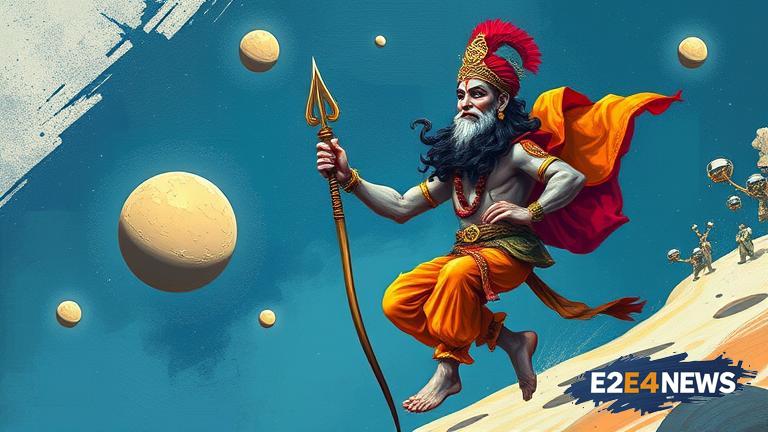In a recent event at a school, Anurag Thakur made a statement that has left many people stunned. He claimed that Hanuman Ji, a prominent figure in Hindu mythology, was the first space traveller. Thakur’s statement was met with a mixture of shock, amusement, and criticism from various quarters. The minister’s claim has been widely reported in the media, with many outlets expressing surprise and skepticism. Thakur’s statement was made in the context of a discussion on the achievements of ancient India, where he emphasized the country’s rich cultural and scientific heritage. However, his claim about Hanuman Ji’s space travel has been widely debunked as a myth with no scientific basis. Many experts have pointed out that Hanuman Ji is a mythical figure and his stories are part of Hindu mythology, not historical or scientific fact. Despite the criticism, Thakur’s statement has sparked a lively debate on social media, with many people sharing their thoughts and opinions on the matter. Some have defended Thakur’s statement, arguing that it was meant to inspire and motivate students, while others have criticized it as a distortion of history and science. The incident has also raised questions about the role of politicians in promoting scientific literacy and critical thinking. Thakur’s statement has been seen as a reflection of the growing trend of promoting pseudoscience and mythology as fact in India. The country has a rich tradition of scientific inquiry and discovery, but in recent years, there has been a growing emphasis on promoting unscientific and mythical claims. This trend has been criticized by many scientists and experts, who argue that it undermines the country’s scientific progress and critical thinking. The controversy surrounding Thakur’s statement has also highlighted the need for greater emphasis on scientific education and literacy in India. Many experts have argued that the country needs to promote a more nuanced understanding of science and history, one that is based on evidence and critical thinking. The incident has also sparked a wider debate about the role of mythology and religion in Indian society. While many people see mythology as an important part of India’s cultural heritage, others argue that it should not be promoted as historical or scientific fact. The controversy surrounding Thakur’s statement is likely to continue, with many people weighing in on the matter. As the debate rages on, it remains to be seen how the incident will impact the wider discussion on science, history, and critical thinking in India. The country’s scientific community has been quick to respond to Thakur’s statement, with many experts expressing their disappointment and concern. The incident has also sparked a lively discussion on social media, with many people sharing their thoughts and opinions on the matter. Overall, the controversy surrounding Thakur’s statement has highlighted the need for greater emphasis on scientific literacy and critical thinking in India. It has also sparked a wider debate about the role of mythology and religion in Indian society, and the need for a more nuanced understanding of science and history.
